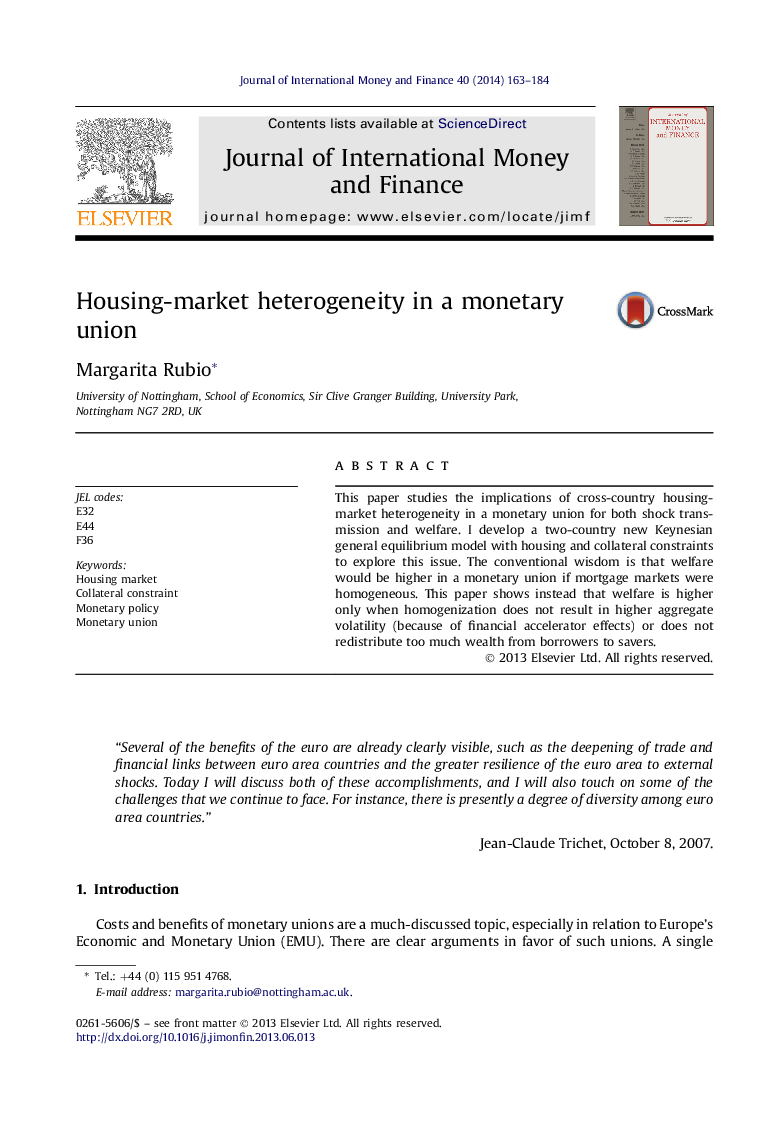| Article ID | Journal | Published Year | Pages | File Type |
|---|---|---|---|---|
| 964649 | Journal of International Money and Finance | 2014 | 22 Pages |
Abstract
This paper studies the implications of cross-country housing-market heterogeneity in a monetary union for both shock transmission and welfare. I develop a two-country new Keynesian general equilibrium model with housing and collateral constraints to explore this issue. The conventional wisdom is that welfare would be higher in a monetary union if mortgage markets were homogeneous. This paper shows instead that welfare is higher only when homogenization does not result in higher aggregate volatility (because of financial accelerator effects) or does not redistribute too much wealth from borrowers to savers.
Related Topics
Social Sciences and Humanities
Economics, Econometrics and Finance
Economics and Econometrics
Authors
Margarita Rubio,
